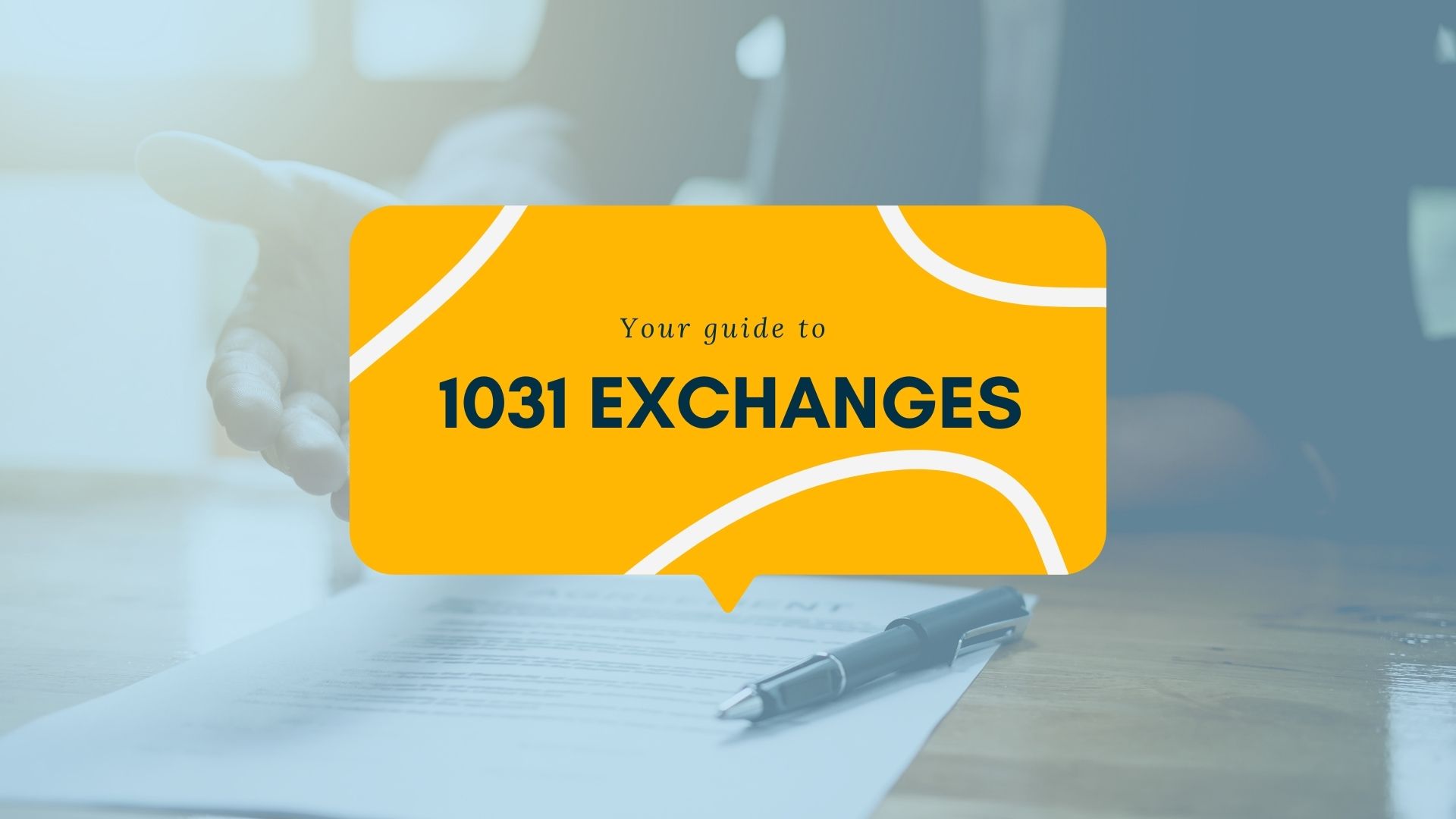Whether it’s casual conversation about real estate prices or speculation from investors about the market, everyone seems to be talking about the next potential recession. It’s happened many times before, and it’s going to happen again—we just don’t know when or how bad it might be.

We brought in Scott Krone on an episode of The Executive REI Show to discuss the current market and how real estate investors need to get their head out of the sand, so to speak, and look around at the different factors that influence real estate markets. Scott is a real estate investor primarily in the self-storage space, but with a wide variety of experience. He’s someone who actively studies the market, economy, government policy, and other factors that will impact his investments.
Together we discuss the pillars of real estate, and why it’s important to be careful and cautious in the current market. We also get into why self-storage is an excellent asset to invest in, especially considering an upcoming recession. Let’s look a bit further at Scott’s story and some of his wisdom and advice for real estate investors.
Scott’s Story
Scott has a fascinating story, and it’s one that highlights the importance of jumping on opportunities when they are presented to you (our executive tip for this episode!). He started his career in architecture, though it wasn’t his original plan. Scott had planned to enter the decades-long family business, but had to pivot when his parents decided to sell it while he was in college.
Scott landed in architecture, working with a professor who presented a number of opportunities to build real, hands-on experience. Because he enjoyed working with the project managements side of things, as opposed to classmates who enjoyed drawing, Scott learned the full scope of the real estate world from design to development.
After gathering experience working on multi-million-dollar projects, Scott could see the kind of money to be made in the industry. Tired of earning that money for someone else, he branched off on his own at the age of 28 to pursue his own projects. He had some initial challenges establishing himself as knowledgeable and authoritative at a young age, but was able to leverage his past experience to establish credibility.
Today, Scott is the managing partner at Coda Management Group, which manages his real estate portfolio. He also owns Coda Design + Build, which handles the development side of projects, and One-Stop Self Storage, which manages the client interface. These companies are dedicated to the self-storage industry, which we will look at later to learn why it’s such an amazing asset class to invest in.
Understanding Market Forces
Some real estate investors like to look at their investments in a vacuum—the real estate market is the only thing that exists. But this just isn’t the case. There are so many market forces that influence costs, prices, and returns, and you can’t ignore all of those external factors.
Scott is adamant that you need to understand the past trends in real estate as well as the current events that will impact the market. There have been four recessions in recent history that are important to understand:
- Massive inflation in the early 1990s.
- Supply shortages in drywall, masonry, steel, and fuel.
- Internet boom-bust, or the “dotcom bubble” based on excessive speculation of new internet-related companies.
- Real estate market bust of 2008-09.
A “bonus” recession might be the COVID-19 pandemic—it is not fully a recession because of the way the government has propped up the economy, but there were significant changes to the market as well as increased labor and supply costs.
The biggest takeaway from looking at the different recessions is that you need to be paying attention to the market. For Scott, he doesn’t want to “get too far out over his skis,” or ensure that he is not over-extending himself or taking unnecessary risks. Keeping your pulse on the market as a real estate investor is a wise way to both make good deals, but also avoid the bad ones that are going to go bust.
Scott’s advice to prepare for a potential recession includes:
- Don’t spend too much on one thing. Costs will dictate the overall loan structure and interest, so make sure you are not overpaying on certain aspects of the project.
- Don’t overextend yourself. Exercise prudence and ensure that you have proper leverage, are getting into solid markets, and are not assuming the market is stronger than it actually is. When it comes specifically to leverage, Scott believes a good rule-of-thumb is 70% debt, though it depends on how that debt is structured.
Pillars of Real Estate
Along with understanding the market, real estate investors also need to have deep understanding about the pillars of real estate. What drives returns? What are the main costs? How is debt structured? There are five main pillars of real estate:
- Supply chain and materials: This includes both the price of materials, access to it, and speed of which you can acquire the inputs for a development project. Supply chain and materials are foundational to the cost of a real estate asset.
- Labor: The cost of and access to labor impacts a real estate project’s overall price and also how long it takes to develop. Labor shortages can result in significant downturns in the market.
- Capital gains: The risk inherent in real estate needs to be compensated for by capital gains, otherwise it’s not worth it. So, the federal government’s response to tax policy and tax-sheltered benefits can massively impact the gains possible.
- Interest rates: Again, the federal government has a role to play in managing interest rates, which sets the bar for borrowing money and financing projects.
- Inflation: As inflation increases, as it currently is, there is more pressure to increase interest rates, which will have a dramatic impact on the market.
These pillars of real estate are like economics 101 for investors. While it might not be the most interesting thing to spend an afternoon researching inflation and interest rates, it is important to do so in order to understand the true state of the real estate market and what’s possible within it.
Opportunities with Self-Storage
Like many real estate investors, Scott started out with multi-family homes. He held a number of different asset classes, but decided to liquidate them in favor of self-storage. His partiality to self-storage is primarily because it is more predictable than other asset classes. There are also three mind-blowing facts about self-storage investing that won him over:
- Self-storage is a billion-dollar industry, but only 10% of Americans use it. This means that there are huge growth opportunities coming in the future and there is a large, un-tapped market for it.
- During the last four recessions, self-storage occupants only dropped 2% and then rebounded aggressively, showing that it is a stable industry. Scott was even able to open new self-storage projects during the pandemic recessionary period.
- There is an expected boom in self-storage in the post-pandemic era because people are using their homes differently. Now, people use their homes for school, work, and exercise, creating need for external storage to keep some of their other things.
These three facts make a very convincing case to invest in self-storage. It’s a stable industry, as evidenced by how well it handled past recessions, and there are massive growth opportunities. Self-storage is also a flexible real estate asset, because it’s possible to play around with the layouts and change things up as needed. This differs from multi-family real estate where things are set in stone once the project is approved.
Conclusion
So many people speculate about when the next recession is coming and what it will look like. That’s a reality of real estate investment: you have to be prepared for what’s coming next. That’s why Scott is such an advocate for learning as much as you can about the foundations and pillars of real estate as well as the market forces that impact the industry. In doing so, you can be prepared to whether the storm and make wise decisions on how to invest.
Since Scott is such an advocate for self-storage real estate assets as investments—and we are too here on the show!—he has offered our audience a free copy of his comprehensive feasibility study on the self-storage market. You can access it by connecting with Scott at info@codamg.com. Make sure you take a look and consider if this is an opportunity for your next investment! Consider it your first step in diving deeper into market and industry forces to learn about real estate investing opportunities.
And, as always, make sure you stick around here at The Executive REI Show to learn more about real estate investing to create generational wealth. We’d love if you visit our website and check out the podcast: www.ExecutiveREIShow.com.



